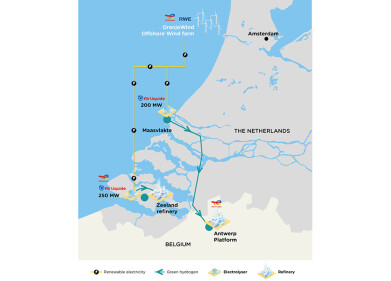Green energy
When Did Climate Change Become a Political Issue?
Feb 28 2016
In the run-up to last year’s Air Quality and Emissions (AQE) show, the event organiser Marcus Pattison claimed that the convention – and the issues being discussed there – could play a significant role in British politics. “With a UK General Election almost immediately after AQE 2015, air quality is likely to be a hot political issue, so the event could not have been better timed,” Mr Pattison told PollutionSolutions. “Just before Christmas, the UK Government issued a consultation that, if adopted, could result in a significant reduction in ambient air quality monitoring. This has caused furious debate in the sector, which bodes well for a lively Conference!”
However, views on pollution weren’t always quite so politically charged. Even though the topic is a hot potato these days, the shockingly low popularity rating held by the Green Party speaks volumes about how climate change issues still have to go in order to wield ultimate political power. Having said that, it shouldn’t be denied that these days, our carbon footprint can seem like nothing more than a bargaining chip for party leaders to bait each other with.
The History of Political Environmentalism
The origins of environmentalism in the UK in terms of politics can be traced back to the mid-19th century, when the Commons, Open Spaces and Footpaths Preservation Society was inaugurated in 1865. From then onwards, Liberal MP James Bryce began campaigning to allow free, unobstructed public access to all parts of the countryside. Though his pleas were initially rejected, the seed was planted and National Parks were established by law in 1949, under Labour Prime Minister Clement Attlee.
Meanwhile, the Great Smog of London in the 1950s led to the premature deaths of roughly 4,000 individuals – and indirectly, the passing of the Clean Air Act in 1956 (and though standards improved, air quality remains a political objective to this day). In the 1970s and 80s, the main political parties began to respond more to environmental issues, though their stances were somewhat erratic and can be mainly seen as an attempt to curry popular favour.
In 1989, the Green Party achieved unprecedented and unexpected success in the General Election, with 15% of the overall electorate’s support. In response, each of the three main parties released their own Environmental White Papers the following year. In 1992, the climate changes summit talks in Rio raised the profile of environmentalism all around the globe, causing British parties to make it more of a priority. In the intervening years, slow but steady progress has been to incorporate environmental issues into politics – though often, they are sacrificed in favour of economic policies.
Environmentalism in Politics Today
Nowadays, climate change in British politics is something of a controversial subject. Despite making subsidies available for homeowners converting to solar power for a short period, the Conservative government has since cut back such funding massively. It has also pledged to plough ahead with plans to mine North Sea oil and expand the fracking industry.
As such, it could be said that David Cameron and his party don’t seem to care enough about the environment as is necessary – even though the issue has never been more politically relevant.
Events
May 18 2025 Algiers, Algeria
23rd International Water Management Exhibition
May 20 2025 Prague, Czech Republic
Jun 17 2025 Guangzhou, China
Singapore International Water Week Spotlight 2025
Jun 23 2025 Singapore
Jun 25 2025 Sao Paulo, Brasil














